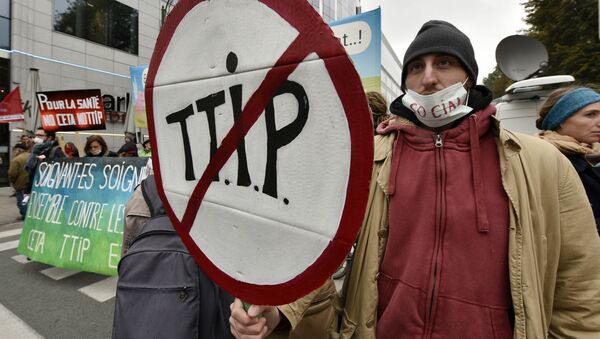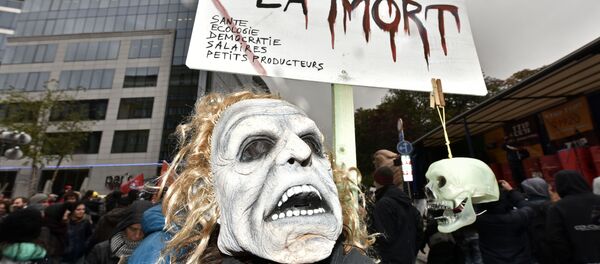The eleventh round of TTIP began on October 19 in Miami, Florida, during which negotiators will focus on tariffs and the use of certain kinds of chemicals in agricultural products.
"TTIP isn't really about trade, it's about corporations rewriting the rule book as to how they're allowed to operate," said Alex Scrivener, the author of the Global Justice Now report.
One senior European civil servant taking part in TTIP negotiations in the United States revealed that the trade agreement is already changing EU food standards. The deal has already pushed the approval of five new GMO products in the EU.
TTIP is already letting big business shape our laws. Here's how https://t.co/AUdzIGl2SF pic.twitter.com/pgYyLTXIbm
— Independent Voices (@IndyVoices) 20 октября 2015
The trade agreement will become "a blueprint for corporate domination" and lead to a number of controversial practices, such as chickens being washed in chlorinated water, the use of bleach to wash beef carcasses and the return of asbestos in certain food products, the report said.
TTIP has stirred controversy around the world, with opponents saying it has been negotiated in secret and undermines environmental, health, safety and labor standards, while proponents argue it will spur economic growth.
The controversial TTIP deal is opposed by many Europeans who claim that the pact would undermine standards and regulations on environmental protection, health and safety, as well as workers' rights, among other points.
Over 3.3 million people have signed a petition against TTIP and a similar EU-Canada deal called CETA, while a protest against both deals in Berlin brought out some 150,000-250,000 people on October 11, according to various estimates.



